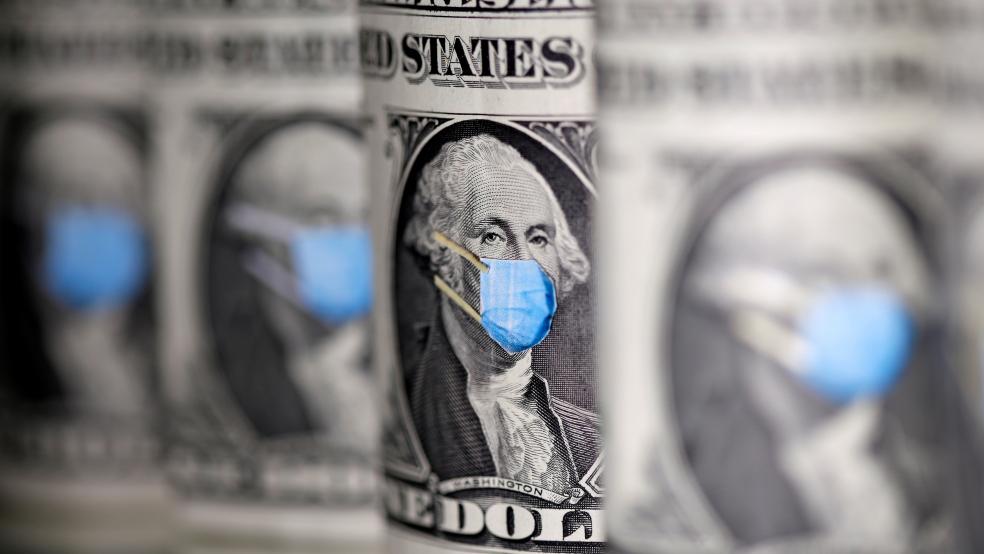The prospects of a coronavirus relief bill of some sort passing before the end of the year picked up momentum on Thursday, as House Speaker Nancy Pelosi (D-CA) and Senate Majority Leader Mitch McConnell (R-KY) spoke by phone about a deal and more Senate Republicans voiced support for a bipartisan package unveiled earlier this week.
Pelosi and McConnell spoke by phone “about their shared commitment to completing an omnibus [spending bill] and COVID relief as soon as possible,” according to a spokesman for Pelosi. The lawmakers are racing to come together on both coronavirus relief and a larger spending package ahead of a December 11 deadline, when current government funding is set to expire.
Their conversation came a day after Pelosi and Senate Minority Leader Chuck Schumer (D-NY) said that a $908 billion framework introduced by lawmakers this week should serve as the basis for negotiations, signaling a willingness to back off of earlier demands for a package in the $2 trillion range — and from a private $1.3 trillion offer the Democrats made to start the week.
Pelosi and McConnell — “frequent rivals but proven dealmakers,” the Associated Press notes — each had made optimistic comments earlier on Thursday. Pelosi told reporters “we will have an agreement” on a coronavirus package by December 11. McConnell said on the Senate floor that “it’s been heartening to see a few hopeful signs in the past few days.” He made clear that sharp differences remain, but again suggested that Congress pass legislation addressing the narrow areas where the parties can agree. “Compromise is within reach. We know where we agree. We can do this,” he said.
The reality: Pressure for a deal is building, with Republican Sens. Kevin Cramer of North Dakota, Lindsey Graham of South Carolina, John Cornyn of Texas and Joni Ernst and Chuck Grassley of Iowa all signaling their openness to the $908 billion compromise. Sen. Dick Durbin (D-IL), the No. 2 Senate Democrat, called for a vote on that package.
But for all the optimistic talk and undeniable momentum, it’s still not clear that the two sides can bridge their differences. McConnell, with additional leverage following November’s elections and Democrats’ softening demands, appears to be taking a hard line. He rejected the $908 billion bipartisan proposal when it came out and he continues to call for a deal along the lines of his roughly $550 billion package. (See here for a side-by-side comparison of the two plans.)
Schumer said Thursday that McConnell “does not seem inclined to compromise” on a relief deal. "Once again the Republican Leader argued that the Senate should pass only what Republicans approve of and leave the rest for later,” Schumer said.
“As far as I can tell, McConnell and other Republicans believe their bill *is* the compromise,” Politico’s Burgess Everett tweeted Thursday morning. Everett noted that the biggest obstacles to a Covid-relief deal have not changed: “Many Republicans oppose sending money to blue states and cities,” he wrote, and “Democrats don't like the coronavirus liability shield for businesses.”
The Washington Post reports that conservative senators have already objected to the bipartisan plan’s proposal for $160 billion in state and local aid, which is already much less than Democrats had been seeking.
McConnell will face some pressure from rank-and-file members, but probably not from the White House. Trump told reporters Thursday that he wants a stimulus deal. “I think they are getting very close and I want it to happen,” Trump said. But a White House spokesman clarified to the Washington Post that the president talking about McConnell’s plan, not the bipartisan proposal.
The bottom line: A narrow Covid-relief deal appears more likely than it has in months. Lawmakers may still stumble as they try to also finalize a $1.4 trillion omnibus spending package, in which case the Covid legislation could be tied to a stopgap spending deal — meaning that we could be talking about both another coronavirus stimulus and a spending package again before long.





